Finding the right manual coffee grinder can be overwhelming with countless options available. A poor choice leads to inconsistent grinds and disappointing coffee. Fortunately, there are clear criteria to guide your selection.
To choose a high-quality manual coffee grinder, focus on burr material (preferably high nitrogen stainless steel), burr geometry, adjustment mechanisms, stability, portability, and budget. The best grinders combine precision engineering with durable construction to deliver consistent grind quality.
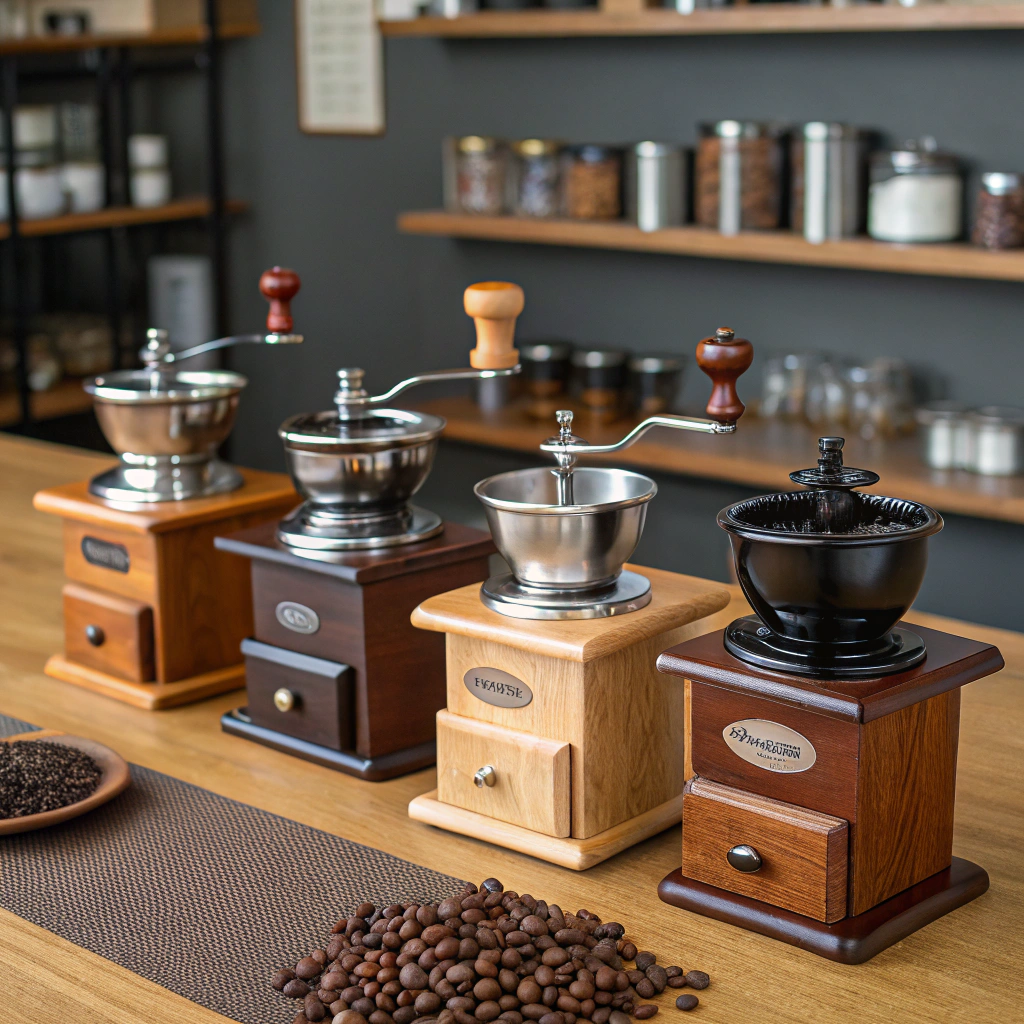
After testing dozens of manual grinders in our workshop and gathering feedback from professional baristas, I've identified the critical factors that separate exceptional grinders from mediocre ones. Let me share what really matters when selecting the perfect manual grinder for your brewing needs.
What Makes Burr Quality So Important for Your Grind?
Many coffee enthusiasts overlook burr quality, only to be disappointed by inconsistent extraction and flat flavors. The wrong burrs can ruin even the finest coffee beans.
High-quality burrs, especially those made from high nitrogen stainless steel, produce uniform coffee particles that extract evenly. Superior burr geometry ensures clean cutting rather than crushing, preserving aromatic compounds and delivering better flavor in your cup.
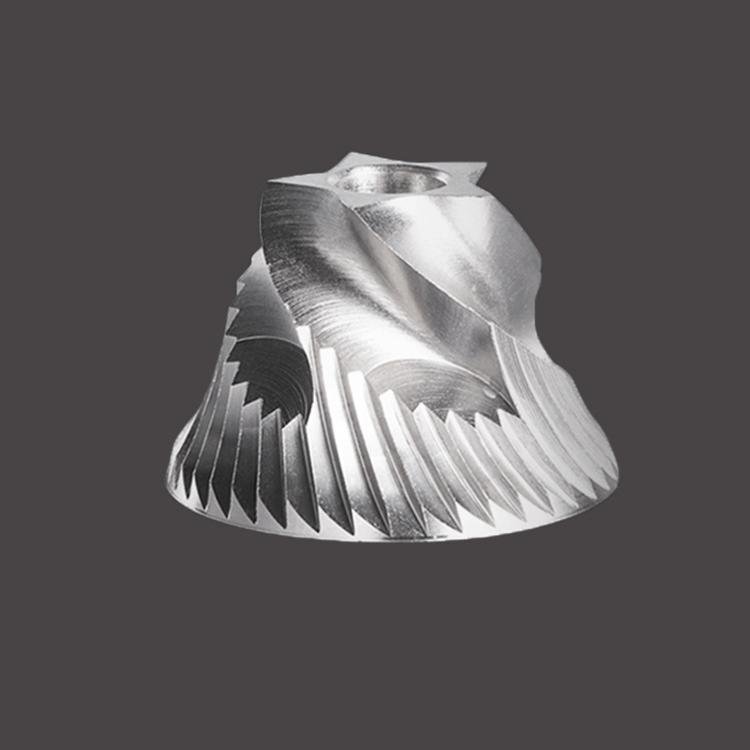
The heart of any coffee grinder lies in its burrs - the cutting mechanism that transforms your whole beans into grounds ready for brewing. In my experience working with manufacturers and testing countless designs, I've found that burr material and geometry are non-negotiable quality indicators.
Materials Matter
High nitrogen stainless steel burrs stand out for their exceptional durability and precision. Unlike ceramic burrs that can chip over time, quality steel burrs maintain their edge longer and deliver more consistent results. At SIF Coffee Tools, we've observed that steel burrs also generate less heat during grinding, which helps preserve delicate flavor compounds in specialty beans.
Burr Geometry and Design
The way burrs are designed significantly impacts grind quality. Superior burrs feature:
| Feature | Impact on Coffee |
|---|---|
| Precision cutting edges | Clean particle separation rather than crushing |
| Optimal teeth spacing | More uniform particle size distribution |
| Proper alignment | Eliminates channeling during extraction |
When examining a grinder, look for burrs with clean, sharp edges and consistent manufacturing quality. The alignment should be precise with minimal wobble. I've found that grinders with stabilized burr assemblies produce noticeably more consistent results, especially at coarser settings needed for methods like French press brewing.
How Important is Grind Adjustment and Control?
Brewing different coffee styles requires specific grind sizes, but many cheap grinders offer limited adjustment. Without precise control, you'll never achieve optimal extraction for your favorite brewing method.
An effective manual grinder should provide precise, repeatable grind adjustments with clear settings. Look for models offering at least 15-35 grinding degrees to accommodate everything from espresso (fine) to French press (coarse) with consistent results.
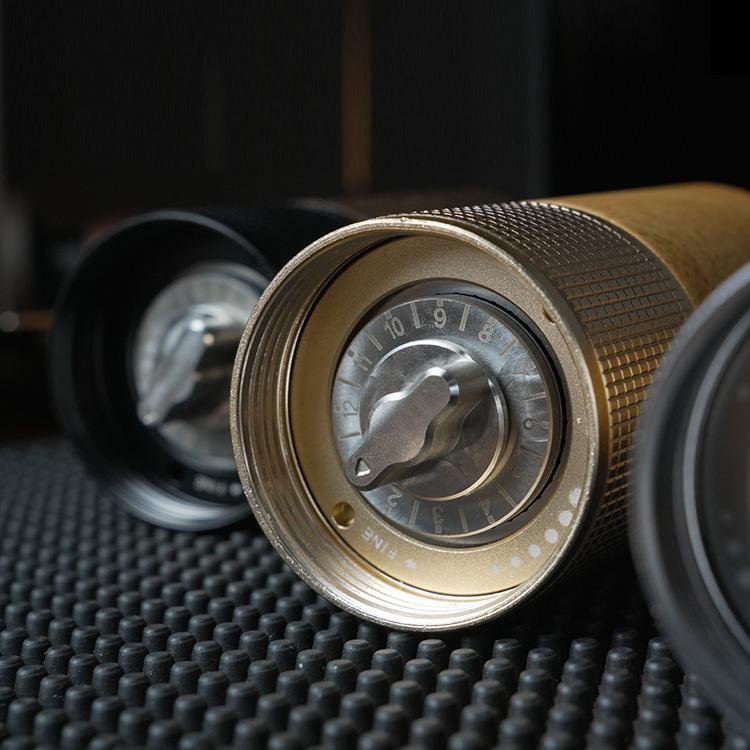
Grind adjustment capability is what transforms a basic grinder into a versatile coffee tool. During my years developing coffee equipment, I've learned that the adjustment mechanism must balance precision with ease of use.
Types of Adjustment Systems
Manual grinders typically feature one of these adjustment designs:
| Adjustment Type | Pros | Cons |
|---|---|---|
| Step adjustment (clicks) | Easy to repeat settings, clear feedback | Limited number of options |
| Stepless adjustment | Infinite fine-tuning capability | Harder to find exact setting again |
| Hybrid systems | Combines advantages of both | Generally found in premium models |
Most quality grinders use a step system with distinctive clicks that allow you to count and remember your preferred settings for different brewing methods. I recommend choosing a grinder with at least 15 distinct settings, though premium models like some we manufacture offer up to 35 grinding degrees.
Adjustment Stability
What many buyers overlook is how well a grinder maintains its setting during use. The grinding action creates vibration that can cause poor designs to shift gradually. This is why we incorporate locking mechanisms in our professional models. When testing a grinder, check whether the adjustment wheel stays firmly in place even during vigorous grinding sessions. A stable adjustment system ensures you'll get consistent results cup after cup.
Does Size and Build Quality Impact Your Grinding Experience?
Many coffee lovers purchase lightweight portable grinders only to find them uncomfortable during extended use. Poor construction leads to wobbling, slipping, and frustration during your morning ritual.
The ideal manual grinder combines ergonomic design with solid construction. Look for models with comfortable handles, stable bases, and quality materials like stainless steel and aircraft-grade aluminum that withstand daily use without compromising performance.
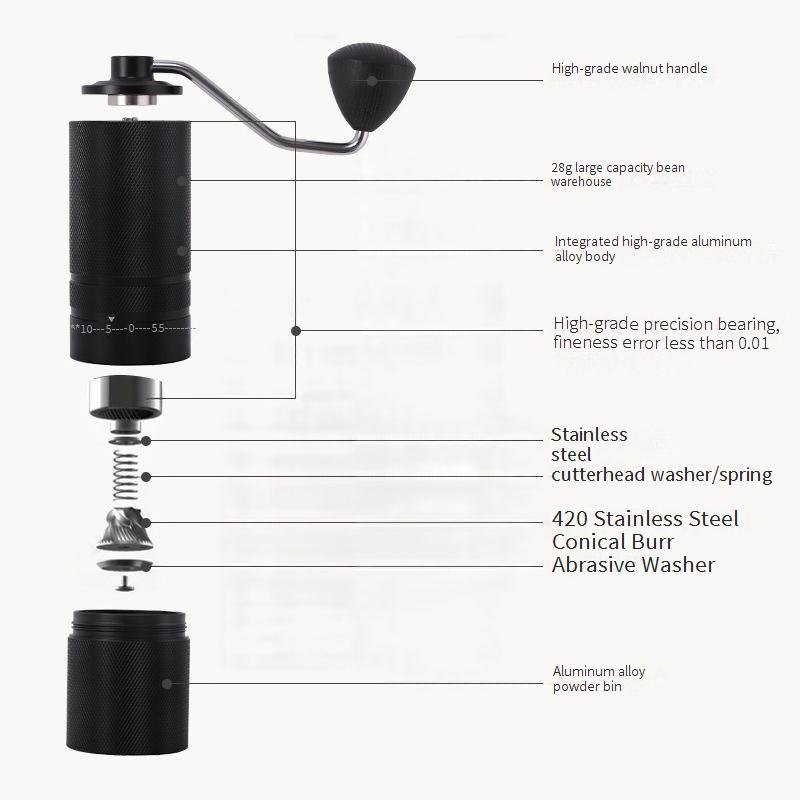
The physical design of a manual grinder dramatically affects both its durability and user experience. Through customer feedback and our own testing at SIF Coffee Tools, we've identified several key design elements that separate quality grinders from disappointing ones.
Ergonomics and Comfort
Hand grinding requires physical effort, so ergonomics shouldn't be an afterthought. The most comfortable grinders feature:
| Design Element | Importance |
|---|---|
| Handle length | Longer handles provide better leverage and require less force |
| Grip material | Non-slip surfaces prevent hand fatigue during grinding |
| Body diameter | Properly sized bodies fit comfortably in hand or between knees |
| Weight distribution | Balanced weight prevents tipping during use |
For travelers and outdoor enthusiasts, compact designs like our travel models prioritize portability without sacrificing comfort. However, if you regularly prepare coffee for multiple people, a slightly larger model with better ergonomics will save time and reduce fatigue.
Construction Materials and Durability
Premium materials directly correlate with longevity and consistent performance. Our quality control testing has shown that grinders constructed from aircraft-grade aluminum, stainless steel, and high-impact polymers resist damage from drops and daily use. Avoid models with plastic components in high-stress areas like the burr mounting or adjustment mechanism, as these are typically the first points of failure. A quality manual grinder should last for many years with proper care - I still use prototypes we developed over five years ago that perform like new.
How Much Should You Budget for a Quality Manual Grinder?
Many coffee enthusiasts waste money on cheap grinders that quickly break or produce inconsistent results. Others overspend on features they'll never use. Finding the right balance is crucial.
Quality manual coffee grinders typically range from $60-200 depending on features and materials. Budget models ($30-60) may work for beginners but often lack consistency. Premium grinders ($100+) offer superior burrs, more adjustment options, and better build quality worth the investment.
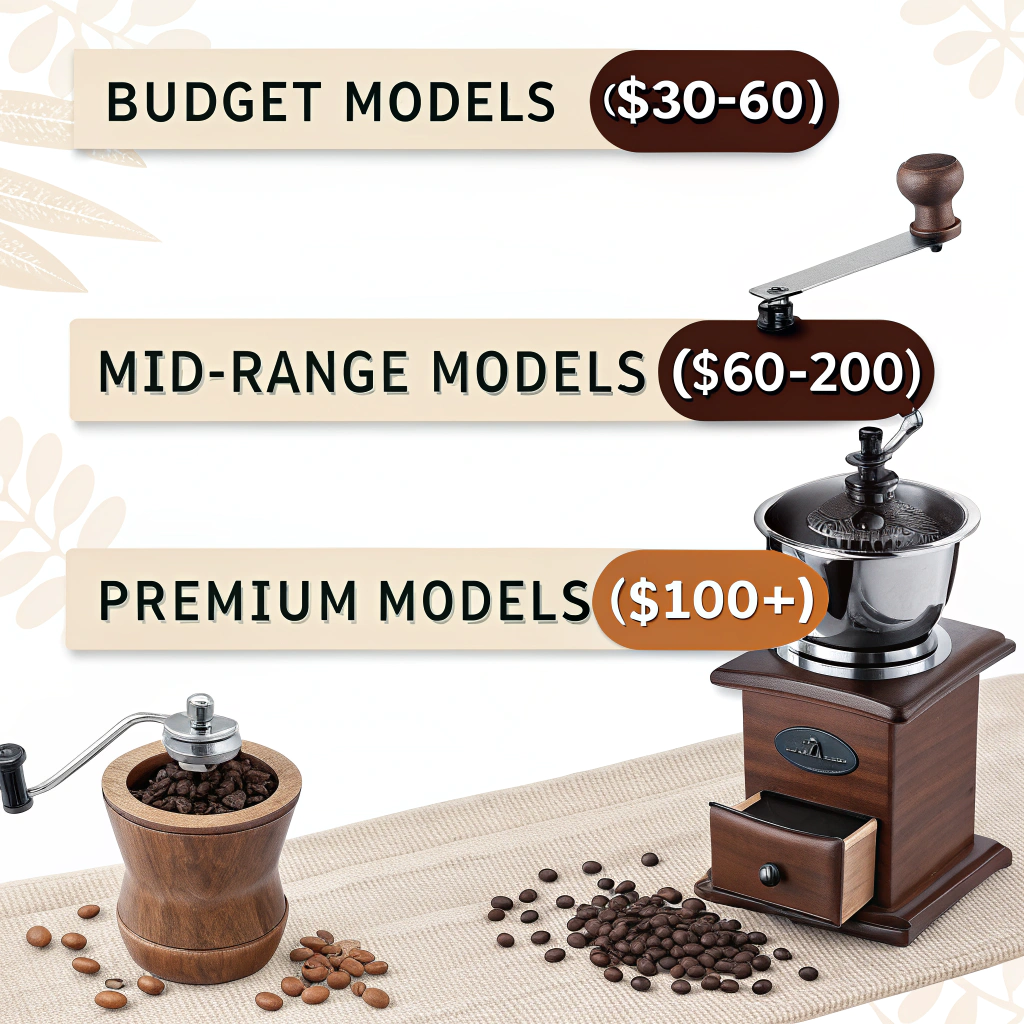
Price is often a primary consideration when purchasing coffee equipment, but value extends beyond the initial cost. In my experience advising distributors and coffee shops on equipment selection, I've observed clear patterns in the manual grinder market.
The Real Cost of Budget Grinders
Entry-level manual grinders (typically under $50) often feature ceramic burrs and plastic components. While these may seem economical, they frequently disappoint in these areas:
| Limitation | Impact on Experience |
|---|---|
| Inconsistent grind size | Uneven extraction and disappointing flavor |
| Limited adjustment range | Unable to optimize for different brewing methods |
| Poorer build quality | Shorter lifespan, potentially higher long-term cost |
| Less efficient grinding | More time and effort required per batch |
Mid-Range Value ($60-100)
This price range represents the sweet spot for many coffee enthusiasts. Grinders in this category, like several in our wholesale lineup, typically offer steel burrs, aluminum or steel construction, and adequate adjustment capabilities. For daily home use, these models provide excellent value, balancing performance with affordability.
Premium Investment ($100-200+)
High-end manual grinders incorporate precision-engineered components, superior materials, and refined designs that dramatically improve the user experience. The additional investment yields tangible benefits: more precise and consistent grind particles, greater durability under heavy use, enhanced grinding efficiency, superior ergonomics, and a broader adjustment range for specialized brewing methods.
Choosing the right manual coffee grinder comes down to understanding burr quality, adjustment precision, build materials, price-to-value ratio, and maintenance requirements. Invest in quality now to enjoy years of consistent, flavorful coffee with the satisfaction of manual brewing.




